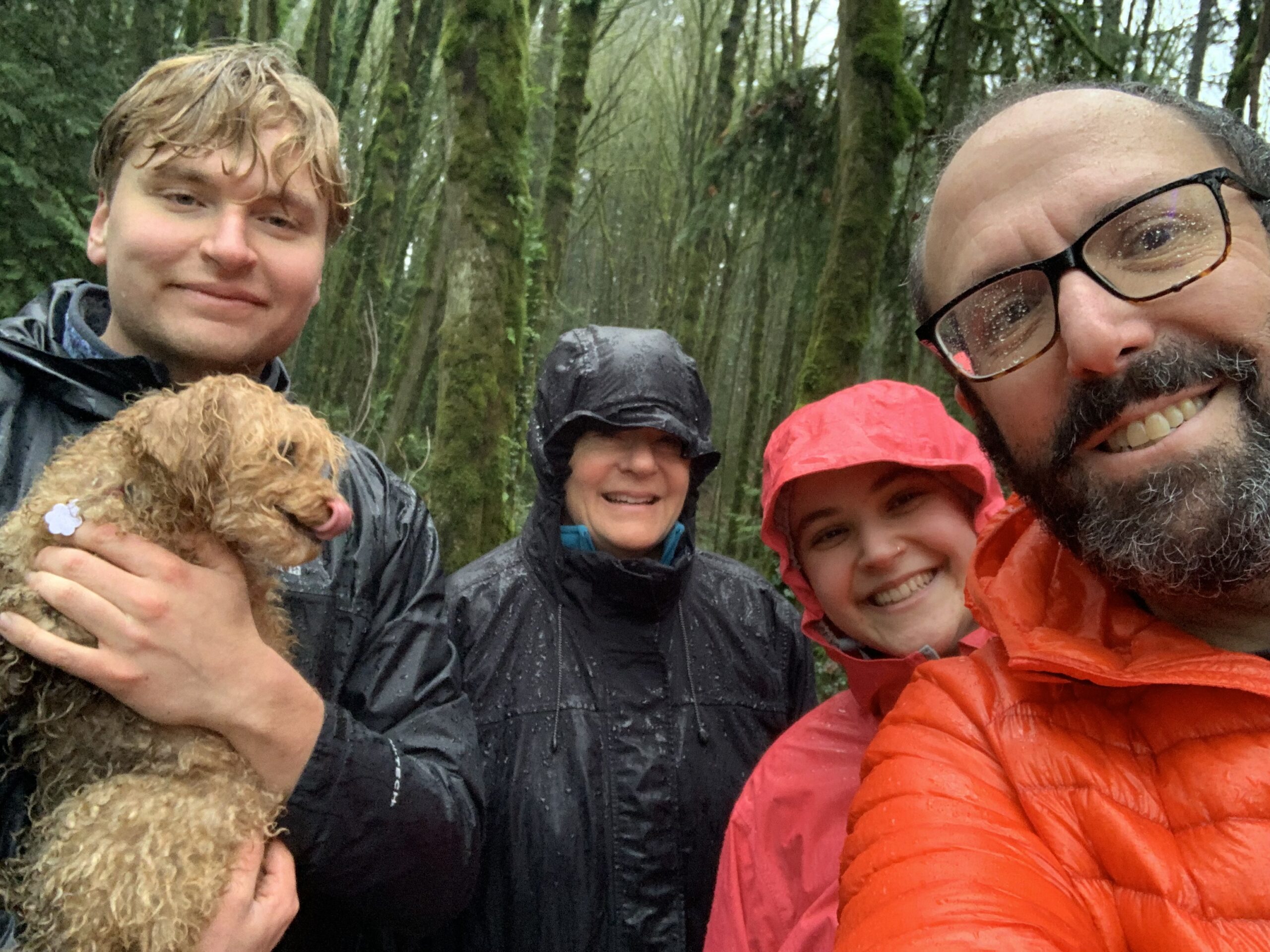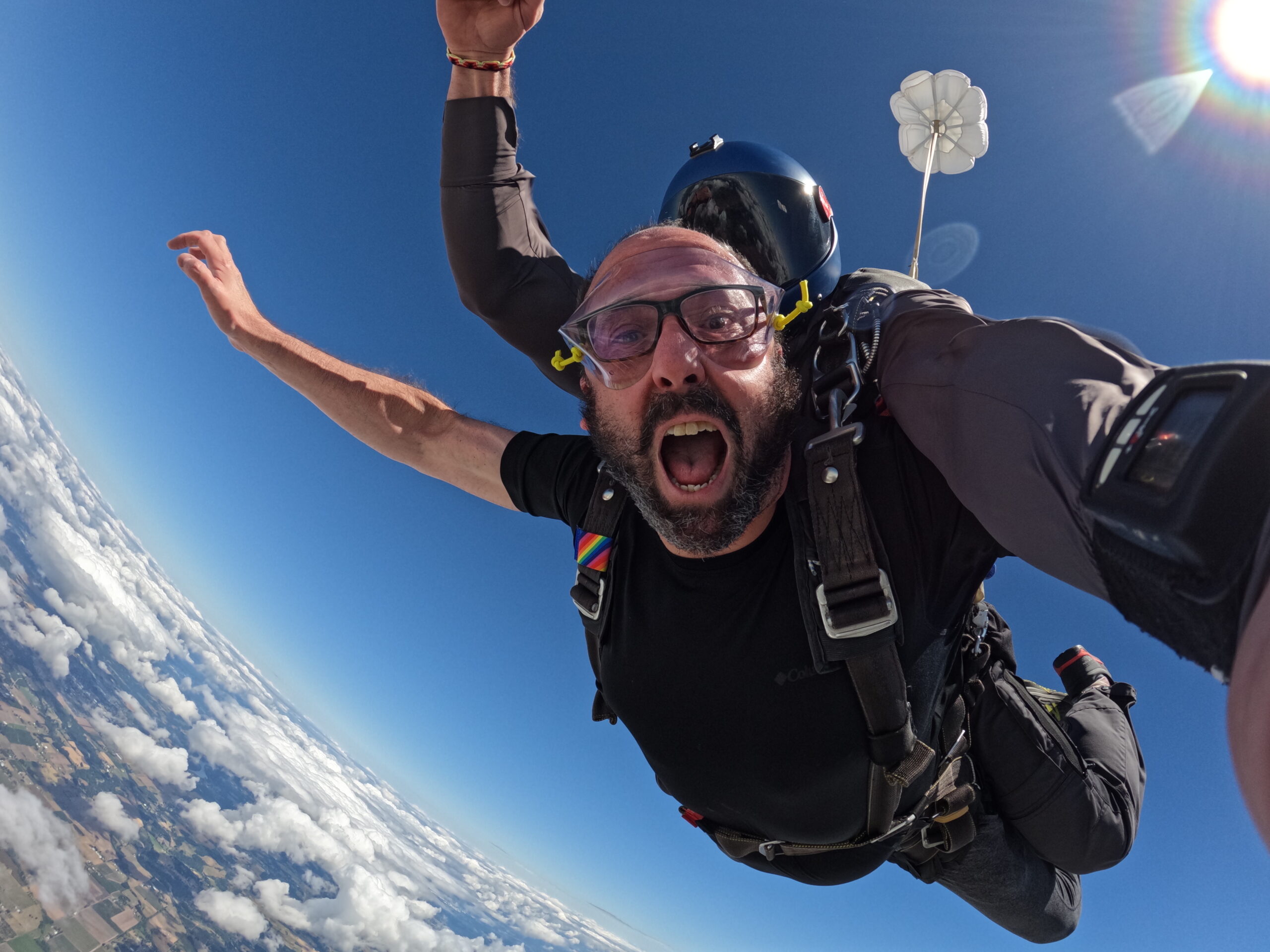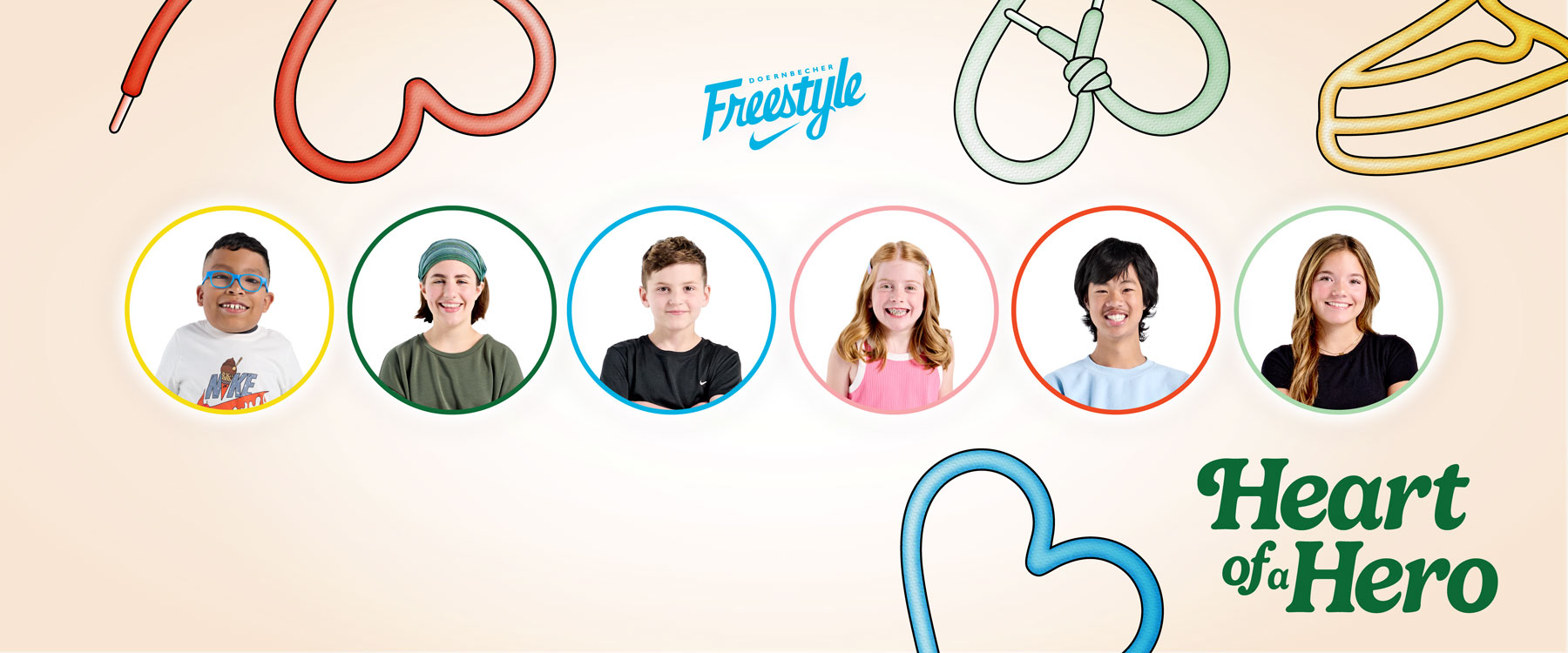By Leslie Constans
Burt Rosen doesn’t see himself as a cancer patient. He’s Burt, who happens to have cancer. That distinction is important to the man who has two different forms of cancer yet has sometimes felt like he has imposter syndrome.
“I have a serious diagnosis, but I feel great. I do a lot of what I want to do — hiking, going to the beach, even skydiving. I ask myself a million times: How do I fit into the cancer world? I’ve come to realize I can’t be an imposter because you are who you are,” he said.
Burt Rosen is a multi-faceted, 59-year-old man who holds many roles: father and husband, brother and son, marketer, patient advocate, blogger, design thinker and most recently, skydiver. Burt jumped out of a plane in July 2024 to mark the second anniversary of his cancer diagnosis, saying, “What’s the worst that could happen? I almost died twice; I have two different kinds of cancer … skydiving wasn’t anything compared to those things.”
Professionally, Burt has spent the last decade as a health care executive focused on improving the patient experience. His own experiences with cancer, including having a palliative care team at OHSU who he says care about him as a person and are “in his corner,” have influenced that work and fuels his desire to make health care more human-centered and holistic. And as someone whose health and well-being has greatly benefited from both traditional and integrative oncology, he’s on a mission to make whole person care more easily accessible for anyone living with cancer.
Care, research and everything in between
In 2022, Burt flew to the East Coast to attend a health care marketing conference on patient advocacy. He had recently been laid off and was starting his own health care consultancy as well as networking for new full-time opportunities. The stress of the past few years professionally had taken a toll on his own health, but he knew something wasn’t quite right after landing and checking into his hotel. The “extreme brain fog” seemed far more serious than stress or burnout, and he found himself unable to text, let alone attend the event.
He called his wife and sister, who advised him to get on the first flight back to Portland. He flew home and went straight to the doctor. While his condition improved briefly, when he relapsed, his wife took him to the ER. On top of already having chronic Lyme Disease, he was diagnosed with internal bleeding and hepatic encephalopathy, which led to a build-up of ammonia in his brain. A further battery of tests revealed something more surprising: Burt had two separate, complex kinds of cancer — renal clear cell carcinoma (kidney) and metastatic pancreatic neuroendocrine tumors, also known as PNETs.
Reeling from the dual diagnosis, Burt went online to research what he wanted for his care and spoke with a close friend, who recommended OHSU. “I was impressed by all the resources and specialties at OHSU, not to mention the research,” he said.
With a complex cancer like his, Burt sees a number of different specialists at OHSU, several of whom are supported by philanthropic funding to advance their patient-focused work. They include Brett Sheppard, M.D., FACS, co-director of the OHSU Brenden-Colson Center for Pancreatic Care and William E. Colson Chair of Pancreatic Disease Research; Guillaume Pegna, M.D., an oncologist specializing in gastrointestinal (GI) cancers and neuroendocrine systems (NETs) at the OHSU Knight Cancer Institute; Jen-Jane Liu, M.D., Director of Urologic Oncology at the Knight Cancer Translational Oncology Program; Angela Rademacher, N.C., LaC; and Andrea Gepner, N.P, a palliative nurse and instructor in the OHSU School of Medicine, among others. The team approach has helped Burt with resources ranging from financial advisors to dieticians to genetic testing.

When Burt underwent surgery in 2023 to remove 17 tumors, half his liver and his gall bladder, his surgeon Rod Pommier, M.D, FACS, FSSO, answered all his questions and even held his hand. This small gesture of kindness and compassion from the OHSU surgeon Burt calls the “godfather of neuroendocrine tumors,” has stuck with him ever since. “The people who care for people are really, really great — the surgeons, the nurses, the PAs,” he said. After the surgery, he took advantage of palliative care treatments to manage his symptoms.
Gepner, an invaluable member of his care team, continues to help him navigate the complexities of having two cancers, as well as to advocate for the integrative care he finds so valuable, including mental health services and alternative therapies like acupuncture.
Supporting patients like Burt with an integrated and whole-person perspective is also the focus of the Knight Cancer Institute Patient and Family Services Program founded in 2011 and headed up by Director Susan Hedlund, M.S.W., LCSW, OSW-C.
This program, which saw 14,000 patients in treatment in 2023, plays a central role in the Knight’s vision to end the burden of cancer by advancing whole-person standards of care that support patients across the full continuum of their experience.
For Burt, today his PNETs cancer is stable with 10 tumors in his liver and a primary tumor in his pancreas that are managed with a shot every 28 days to stop the growth of the tumor receptors. He keeps a spreadsheet of symptoms and tracks it every day, sharing it with his health care team if anything is out of whack.
“If I can kick the can down the road for another 5 to 10 years with this treatment, I will,” he said. “I’ll have PNETs for the rest of my life, but I am hoping I can take advantage of more research coming from OHSU.”
His kidney cancer is currently stable and being monitored.
A future full of dreams
Now that he’s crossed skydiving off his bucket list, what is next for Burt?
Always an advocate of the patient experience, Burt wants to take on many causes related to improving health care. A few on his list are to volunteer at OHSU to improve the patient experience for people going through cancer treatment and be an advocate for rebranding “palliative care” to help remove the stigma and association with “hospice care.” He has also launched two new Facebook patient groups for people like him with PNETs, called PDX NETswork and Adventures with NETs. In addition to further research into better treatments and outcomes for his two cancers, one of which is “uncommon,” Burt sees an opportunity for philanthropy to further strengthen and market the integrative oncology that he finds so valuable in his own patient journey — massage, acupuncture, naturopathy, and palliative care.
“I have a lot of dreams,” he said. As he looks ahead to realizing those dreams, Burt created his own set of guiding principles to help him “prioritize my time and volunteer efforts and how I am living my life.” They are:
- “Heal myself;
- Better support my friends and family;
- Help others heal; and,
- Help others who help others heal.”
For Burt, his cancer isn’t the only thing that matters. His goal is to continue to show up as a husband, dad, son, brother and friend for all the people in his life, just like they have for him.




